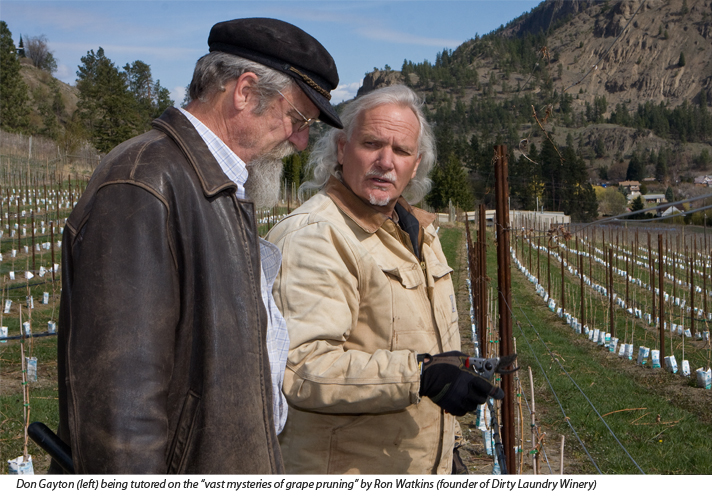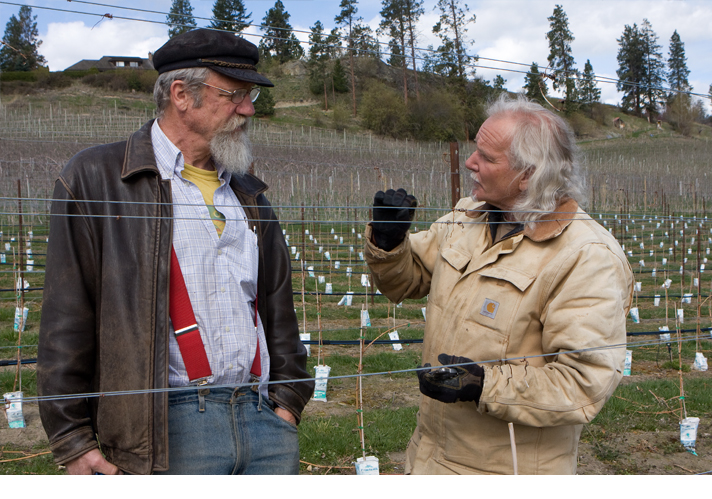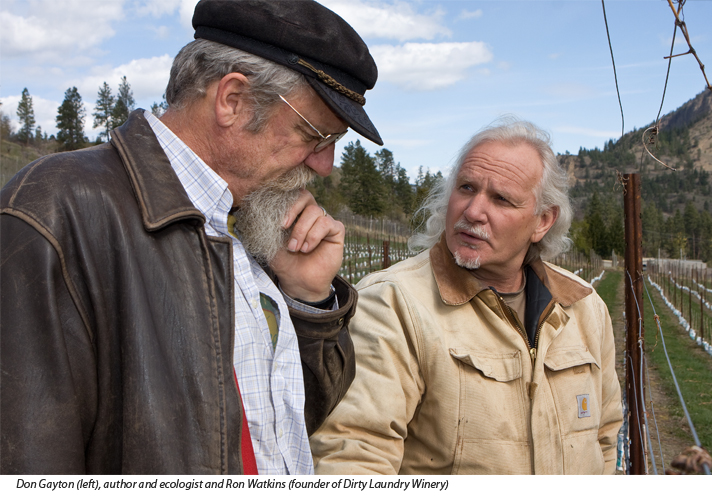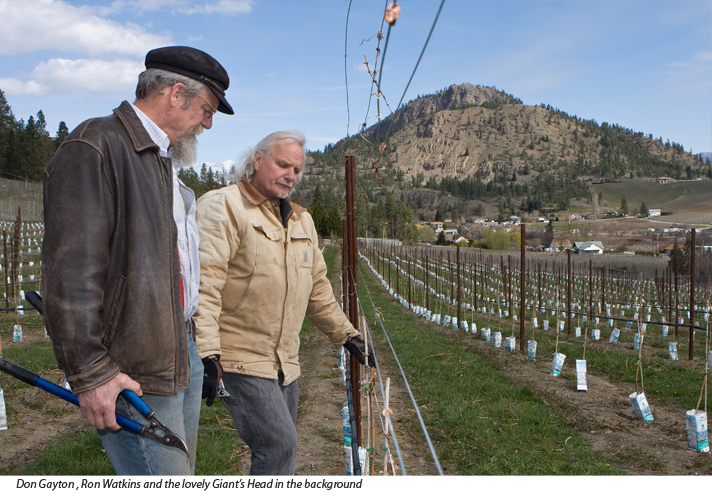By Don Gayton
Wine is very much a consumer product. It is manufactured, priced, delivered, advertised and so on. Wines even have UPC codes, proudly announcing their “product” status. But to me, wine is far more than a simple consumer product; it is a tangible part of local culture. What other product can you name that has as many resonances and connections as wine? Can you envision a culture building up around say, sugar-frosted breakfast cereal? (Don’t answer that.)
The cultural layers of wine reach back to the time of Dionysius the Greek, and his Roman descendant, Bacchus. Both gods celebrated wine, the freedom of being in nature, female beauty and a kind of creative disorder. I have to say these two dudes were very perceptive. Then of course there are the modern Bacchic heartlands of France and Italy. These countries have each added significant cultural layers to wine, including cuisine, architecture, landscaping, conviviality, conversation and a sense of local place.
I participate in wine culture every time I share a bottle with good friends, and indulge in the joy of random, engaging and often hilarious conversation. Or when I sit down for a solitary supper, uncork a bottle of wine, and open a book. Or when I try to describe (and even more difficult, to remember) the subtle and ineffable qualities that distinguish one wine from another. Or when I look across the orderly and serried ranks of a well-tended vineyard. I am part of wine culture when I am tutored on the vast mysteries of grape pruning. And again, when I watch the raw purple juice spilling from the crusher, when it begins its long and patient path towards my supper table. Or when I am introduced to the gustatorial joys of food and wine pairing. Wine is a message in a bottle, and that message is culture.
But ancient Greece and Rome, and contemporary Italy and France, are settled places. Places where people have lived for centuries. Places where the deals have all been made, the races all won, and the limits all known. We, on the other hand, live in a frontier, although it is luxury, split-level Okanagan frontier. Our European settler society is barely a hundred years old, and is still on the make. We don’t seem to have time for local culture or a sense of place, because the latest real estate flyer (Homes & Land) should arrive any minute now.
Can we build an Okanagan sense of place while we are still in the frontier mindset? I respond with an emphatic yes, although it has never been done before. We can build it by developing local dance, music, art, writing. Add local pottery, sculpture, architecture, gardens and landscaping. Move on to local theatre, cuisine, comedy, fabric arts and photography. All these endeavors can be bathed and nurtured by local wine. Our wine can be the fertilizer, the amniotic fluid and the stalking horse for local art and culture.
We have all the raw materials. A unique ecological region, with distinctive natural landscapes, a healthy wine industry, and talented folks scattered all the way from Armstrong to Osoyoos. As one wag said, “we have all the elements for a vibrant café society, except the conversation.”
The analogy between terroir and local culture is obvious. I would call myself a Terroirist, if the word weren’t so damnably hard to pronounce. It can also be a risky occupation if the airport security guard with the high school diploma asks what you do for a living. Because of terroir, wine is the ultimate place-based product. That is, in part, why wine touring is so popular. In our highly mobile, virtually placeless society, folks can buy a wine that connects them–for a few fleeting moments–to a particular physical place on this earth.
A fabric artist friend of mine temporarily buries her creations in different soils of the Okanagan. When she unearths them, she is rewarded with the subtle earth-toned shadings—the terroir—of each individual place. I like that notion, of internalizing terroir. Don’t describe terroir, be it. Since I’m unwilling to bury myself for any length of time, I content myself by finding grassy Okanagan hillsides dotted with ponderosa pine, balsamroot and bunchgrass, and rolling in them. First I check for cactus though.
As we open up bottles of Okanagan wine, we need also to open up Okanagan culture. Forgive me for quoting myself, but this kind of sums it up:
“I have come to understand that wine is place. Wine is celebration. It makes us content with simple foods and grateful for elaborate ones. Wine magnifies the perfume of lilacs after a spring rain, elevates the grace notes in music and writing, and helps us realize every day is an accomplishment — even if we did very little. Wine transforms ordinary confusion into an ecstatic form of wonder. Wine lets us forgive the status quo while it foments us to revolution. Wine reminds us that we are all, fundamentally, romantic poets.”
Don Gayton is a local ecologist and writer. His books are available at Hooked on Books in Penticton. More info at www.dongayton.ca
Thank you to Don Gayton for being our guest writer and providing us with a unique and wonderful perspective on the business of wine and the culture surrounding it.
photography by Stephanie Seaton



